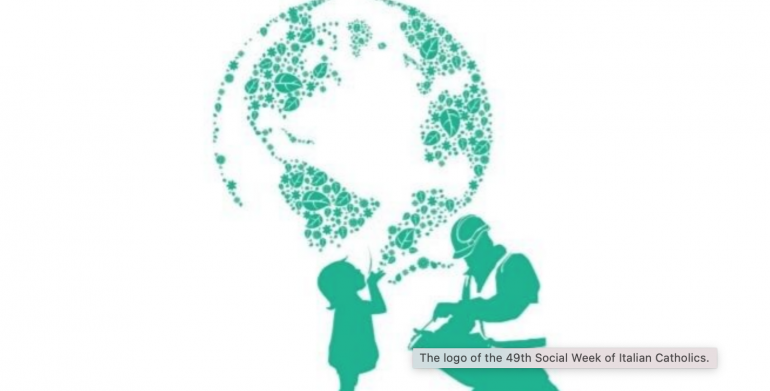Pope: “We are called to be the yeast that leavens the dough”

Pope Francis has sent a message to participants in the 49th Social Week of Italian Catholics in Taranto. The theme of the event is: "The Planet We Hope For. Environment, Work, Future. Everything is connected”.
Pope Francis hopes for a society and a planet where people are always on the move attending to the cries of others, changing course if needed and adapting themselves to situations for a better world and the common good.
He evoked the image of this society in a message to participants in the 49th Social Week of Italian Catholics, which kicked off on Thursday in the coastal city of Taranto in southern Italy. The theme of the October 21 to 24 event is, "The Planet We Hope For. Environment, Work, Future. Everything is connected."
In his message, the Holy Father noted that their gathering was taking place in the context of a health and social crisis unleashed by the pandemic. “We cannot resign ourselves and stand at the window and watch, we cannot remain indifferent or apathetic without assuming responsibility for others and for society. We are called to be the yeast that leavens the dough”.
The pandemic has also broken the illusion that we are omnipotent and can trample down the territories we inhabit and the environment in which we live. In this regard, the Pope called for the courage of ecological conversion, especially community conversion. He called on participants in the Social Week to be open to the Holy Spirit and listen to the sufferings of the poor, the last ones, the desperate, the families who are tired of living in polluted, exploited, burnt-out places, devastated by corruption and degradation. In this regard, Pope Francis offered Italy’s Catholics three “road signs” on the road of hope.
The first is to be attentive to crossings, where we come across people in despair, such as young people forced to leave their native countries and who are jobless or exploited. There are women who are jobless due to the pandemic or who are forced to choose between motherhood and profession; workers without opportunities; poor people and migrants who are not welcomed and integrated; elderly people who are abandoned and lonely; families who are victims of usury, gambling and corruption; entrepreneurs abused by the mafia; or communities destroyed by fires. There are also many sick people, adults and children, workers forced to do arduous or immoral work, often in unsafe conditions. The Pope said we cannot remain indifferent to these brothers and sisters of ours who are crucified and are awaiting resurrection. He prayed that the Holy Spirit inspire all to leave no stone unturned so that their legitimate hopes may be realized.
The second “road sign” that the Pope offered is the “no parking” sign, pointing out that tiring and being resigned in the face of challenges would see Gospel fade away. On the contrary, God's love is never static which impels us never to stop. Stressing that hope is always on the move, he said, “let us not stay in sacristies, let us not form elitist groups that isolate themselves and close themselves off”.
He said Christians should not resort to the halfway measure of limiting themselves to just denouncing evil but to assume responsibility for creating networks of redemption. “Technological and economic development that does not leave a better world and an integrally higher quality of life,” he said “cannot be considered progress." “We are not afraid to denounce and oppose illegality, but above all we are not afraid to sow good!
The Pope’s third road sign is the obligation to turn, saying “hope invites us to recognize that we can always change course, that we can always do something to solve problems”. What is needed is a profound conversion that touches not only environmental ecology but also human ecology, the ecology of the heart. The turning point will come only if we know how to form consciences not to look for easy solutions to protect those who are already guaranteed but to propose lasting processes of change for the benefit of the younger generations.
This, he said will help create the planet we hope for: a planet where the culture of dialogue and peace will bring forth a new day, where work confers dignity on the person and safeguards creation, where culturally distant worlds converge, animated by a common concern for the common good.
Radio Veritas Asia (RVA), a media platform of the Catholic Church, aims to share Christ. RVA started in 1969 as a continental Catholic radio station to serve Asian countries in their respective local language, thus earning the tag “the Voice of Asian Christianity.” Responding to the emerging context, RVA embraced media platforms to connect with the global Asian audience via its 21 language websites and various social media platforms.











